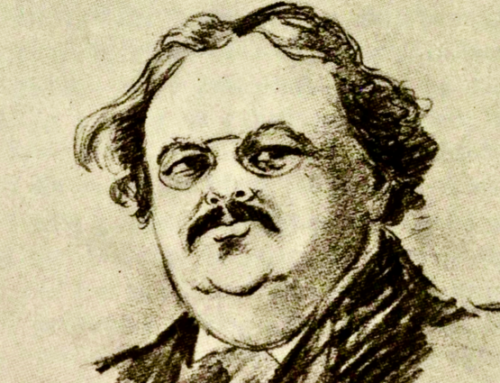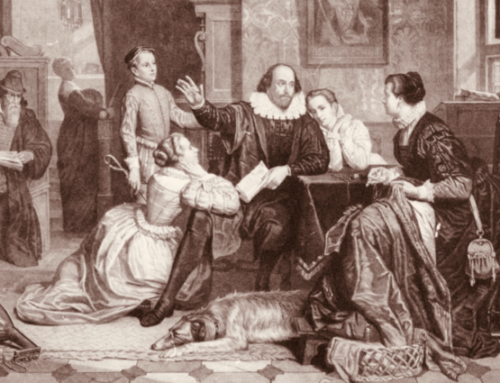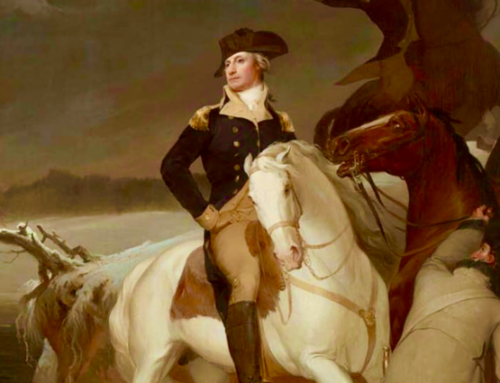Even mainstream liberals today accept as fact that America is and always has been a racist system, built upon the backs of slaves. Yet American history itself was deeply divisive and extremely complicated, and after all, there is a finality to the subject: In the end, the United States abolished slavery, ending the scourge forever in this country.
 Over the past two years, as I noted in my previous essay here at The Imaginative Conservative, we’ve seen what was once the very particular and limited politically-correct ideology of the New Left of the late 1960s—especially with its focus on race, class, and gender—become somewhat mainstream, especially in regards to the history of slavery in America. I don’t mean to suggest that political correctness (a rather Maoist concept) was ever dead. Far from it, it grew steadily from the late 1960s to today. But, the New York Times’ 1619 Project, as well as the great domestic upheavals of 2020, seem to have accelerated what was once the very particular and limited ideology of the New Left. Now, even mainstream liberals accept as fact that this country is and always has been a racist system, built upon the backs of slaves. Many would go as far as Karl Marx and other radicals of the nineteenth century, claiming that all of capitalism was built on the backs of slaves.
Over the past two years, as I noted in my previous essay here at The Imaginative Conservative, we’ve seen what was once the very particular and limited politically-correct ideology of the New Left of the late 1960s—especially with its focus on race, class, and gender—become somewhat mainstream, especially in regards to the history of slavery in America. I don’t mean to suggest that political correctness (a rather Maoist concept) was ever dead. Far from it, it grew steadily from the late 1960s to today. But, the New York Times’ 1619 Project, as well as the great domestic upheavals of 2020, seem to have accelerated what was once the very particular and limited ideology of the New Left. Now, even mainstream liberals accept as fact that this country is and always has been a racist system, built upon the backs of slaves. Many would go as far as Karl Marx and other radicals of the nineteenth century, claiming that all of capitalism was built on the backs of slaves.
Yet, there are many problems with this. Aside from the critical fact that half of the states, prior to the Civil War, didn’t have slavery, and free labor radically outproduced slave labor (thus, leading to the conclusion that America and capitalism were really built on free labor, not on slave labor), perhaps the biggest problem resides in our very Founding and the documents that define it. In particular, it is worth considering the Declaration of Independence, passed on July 4, 1776, and signed on August 2, 1776. In it, Jefferson first defines the nature of the universe and man’s role within it. That is, “when in the course of human events….” In the following paragraph, though, Jefferson made a statement that astounded the world. But, to Jefferson and Congress, they were merely stating the obvious: “We hold these truths to be self-evident, that all men are created equal, that they are endowed by their Creator with certain unalienable Rights, that among these are Life, Liberty and the pursuit of Happiness.” To be sure, this has to be one of the most powerful sentences in the history of the world, especially in its non-religious history. Critically, the statement claims that “all men”—not some men, not non-Catholics (see, for example, the 1689 English Bill of Rights), or not non-whites—are created equal. The founders could have easily tempered this statement, but they didn’t. Indeed, it exists in a world of glory, and it became, as Martin Luther King, Jr., so profoundly understood it, a promissory note. Just because Americans did not live up fully to the statement in 1776 did not mean that they never would.
On the 150th anniversary of the signing of the Declaration of Independence, President Calvin Coolidge summed up the matter brilliantly:
About the Declaration there is a finality that is exceedingly restful. It is often asserted that the world has made a great deal of progress since 1776, that we have had new thoughts and new experiences which have given us a great advance over the people of that day, and that we may therefore very well discard their conclusions for something more modern. But that reasoning can not be applied to this great charter. If all men are created equal, that is final. If they are endowed with inalienable rights, that is final. If governments derive their just powers from the consent of the governed, that is final. No advance, no progress can be made beyond these propositions. If anyone wishes to deny their truth or their soundness, the only direction in which he can proceed historically is not forward, but backward toward the time when there was no equality, no rights of the individual, no rule of the people. Those who wish to proceed in that direction can not lay claim to progress. They are reactionary. Their ideas are not more modern, but more ancient, than those of the Revolutionary fathers.
Coolidge, of course, is right, and much of American history has been about the fulfillment of the vision of the American Founding. None of this should suggest that the line toward fulfillment could be found in some imaginary and illusory progressivism. The building and maintenance of a republic is hard, hard work, and sometimes the labor is interrupted.
I am also reminded of the very good words of my colleague and friend, Miles Smith IV (mentioned in my last essay as well) that America’s history is as much anti-slavery as it is pro-slavery.
Perhaps, rather than a 1619 Project, we need the 1776 Project, or perhaps a 1861 Project, or, let’s hear it for Silent Cal, a 1926 Project. On a serious note—we really need is good moral history. And, what would good moral history tell us:
- That racial slavery was always and everywhere an evil.
- That no people should be ripped from their homelands and made property.
- That free labor always outcompetes slave labor, and that, as Tocqueville so wisely observed, the Ohio River separated not just the free from the unfree, but the productive versus the unproductive.
- That abolitionist societies first sprang up in Philadelphia in 1776.
- That northern states systematically uprooted slavery as an institution.
- That the common law forbade slavery.
- That the Declaration of Independence, especially in its first draft but always in its intent, condemned slavery.
- That for every pro-slavery man in the Constitutional Convention, there was an anti-slavery man as well.
- That Congress, unanimously, prohibited slavery in the Northwest Territories, 1787.
- That Congress ended America’s participation in the international slave trade as early as January 1, 1808.
- That, as late as the Missouri Compromise of 1820, Founding Father Rufus King, though advanced in age, continued to fight the good fight against slavery.
- That colleges—such as Hillsdale, founded in 1844—were abolitionist.
- That northern states, throughout the 1830s and 1840s, passed Personal Liberty Laws, disallowing the use of state personnel or property to aide slave catchers.
- That, the Civil War and the 13th Amendment forever ended slavery and slave holding.
While none of the above is written—in any way, shape, or form—to justify America’s slave history, it should be clear that the history itself was deeply divisive and extremely complicated. Yet, if we have to sum it all up, I would go back, happily, to the speech of President Coolidge. There is, after all, a finality to the subject. In the end, we abolished slavery, ending the scourge forever in this country.
The Imaginative Conservative applies the principle of appreciation to the discussion of culture and politics as we approach dialogue with magnanimity rather than with mere civility. Will you help us remain a refreshing oasis in the increasingly contentious arena of modern discourse? Please consider donating now.
The featured image is “The Anti-Slavery Society Convention, 1840,” (1841) by Benjamin Robert Haydon, and is in the public domain, courtesy of Wikimedia Commons.







I am one of those “mainstream liberals” that you refer to in your piece. But I’m one that agrees to a very large extent with your piece on slavery. I found your points on the history of slavery to be in alignment with my understanding of history. Where I stand up and applaud are your points on a good moral history.
I would only add a hope that people who set store by accuracy and reason look for areas of agreement beyond the stereotypical left/right divide.
Love your analysis, Bradley
I believe your premise of free labor vs slavery is completely misguided. Between 1801 and 1862, cotton was the most exported commodity from the US and was picked by slaves. In 1860 cotton production increases to more 4,000,000 bale’s, (~ bale weight of 400 to 500 lbs), which is ~ 1..8 billion lbs of cotton; a significant piece of the US economy at that time. Between 1820 and 1860 ~ 80% of the global cotton supply was produced in the US.
Nothern states benefitted from the southern slave economy; New York banks made money insuring slaves and supporting the slave trade, so wealth from slaves was distributed beyond the southern states.
Many of the founding fathers had slaves in 1776, prohibiting the import of slaves was enacted by Congress in 1808. the 13th amendment abolished slavery in the US and was enacted in 1865. These key federal changes occurred after 1776, which proves, “all men” were viewed as equal in the US. In reference to the electoral college, slaves were considered to be 3/5 a citizen of the US in the 1780’s time frame.
My comments do not account for Jim Crow laws that were detrimental to blacks in the US. Your assessment of slavery paints a very rosey picture from my prospective.
The following corrects a mistake in Carlos Barefield’s response.
Many of the founding fathers had slaves in 1776, prohibiting the import of slaves was enacted by Congress in 1808. the 13th amendment abolished slavery in the US and was enacted in 1865. These key federal changes occurred after 1776, which proves, “all men” were not viewed as equal in the US.
Why must we argue American history from a leftist point of view? We are ceding the entire field to the left. We can look back on slavery today and recognize that we are glad that it is gone, but we also must understand that it was an ancient labor institution and had great importance in allowing for the success of the US going back to the days of colonial Jamestown. Also, the significance of the Declaration of Independence is found in its last paragraph, not the “rhetorical flourish” of the second paragraph. In point of fact, the Declaration did not create a “nation,” it was a statement by congress authorized by the sovereign states declaring each of those states as “Free and Independent States.” Those new states didn’t spring from the dust in July 1776, they had long histories on this continent and historical and cultural ties that stretched deep into English history. Jefferson didn’t even want to be there. His desire was to be in his, as he put it, “native country” of Virginia working on their state constitution. And then the author makes reference to Martin Luther King, Jr., a Marxist. The author is essentially adopting the “proposition nation” interpretation of the Declaration that was created out by Lincoln and codified by Harry Jaffa who mysteriously invented the notion that “equality” was a conservative principle. No one had thought that before but it was somehow magically revealed to him and him alone. Please, spare me.
We are currently in the middle of a war to define and control history. That is the crux of the 1619 Project as well as the 1776 Commission. That particular war is essentially a battle between the intersectional left and the older Straussian/neoconservative “right.” Both make points, but both are arguing from a distinctly leftist point of view. If we are to confront these people honestly, we must argue honestly. Adopting their interpretations of the past and using them as a point of debate is a certain path to our own defeat. I am actually surprised the “Imaginative Conservative” would publish this piece. Please, do yourself a favor and read Mel Bradford.
The leftists’ portrayal of slavery as unique to our history is at the sinister root of efforts to destroy good and God from our society. Facts don’t matter to leftists, although Dr. Birzer’s concise history does an excellent job of setting a foundation for those whose minds have yet to be corrupted.
I ask those who push CRT to name, not just any country, but any community that had specifically outlawed slavery prior to 1776, much less 1619. Further, ask them to name one country that went to war to free slaves, recognizing that slave insurrections are distinctly different than the Civil War that was fought. So far, and perhaps I just rove in a circle full of confirmatory bias, But I have yet to have anyone meet those questions with anything other than dumbfounded silence.
It’s better to ask good questions of those who dispute truth than to present facts that are met with with fairytale of pure fantasy.
Nothing brings more hope for the future of humanity than the ideals the American flag represents.
This piece reminds me why I love America. Not its “divisive and complicated” involvement with racist slavery, but this above all: that we can never- despite our best efforts – forget what we said we are. And so “the struggle for racial justice in this country is not a fairy tale with a happy ending.” (Biden, 2020) We have always to return to what we say, but do not do. We must never demand the same tenor of patriotism from descendants of slaves as from happy immigrants. That love of country for Blacks is something for them to decide for themselves, and for the rest of us, something to be grateful for whatever form that takes. The 1619 Project is not something that must we agreed with intellectually, but must never be deemed un-American much less a betrayal of the Declaration of Independence.
All very noble and high-minded, but it ignores the facts that people are routinely ripped from their homelands and made property, that there are more slaves in the United States today than there were in 1860, that they live without the protections of law that existed in the South before 1865, and that — obviously — everybody ignores their plight.
There are a number of international, and in fact American, organizations trying to raise awareness and abolish slavery here for good and all. Look them up.
It is true that the United States abolished slavery, but 1) they were hardly the first and 2) there had to be a Civil War before that.
When you think that the czar freed the serfs before the Emancipation Proclamation and that all it took was his signature, while America bled on the battlefields you might consider that there is something to be said for autocracy, after all….
To Mr Johnson,
You might recall who ripped who from where.. Blacks ripped their brothers from their families. Then put hem in cages on the beach, from where the Portuguese slave traders picked them up and took them to whomever would pay the highest.